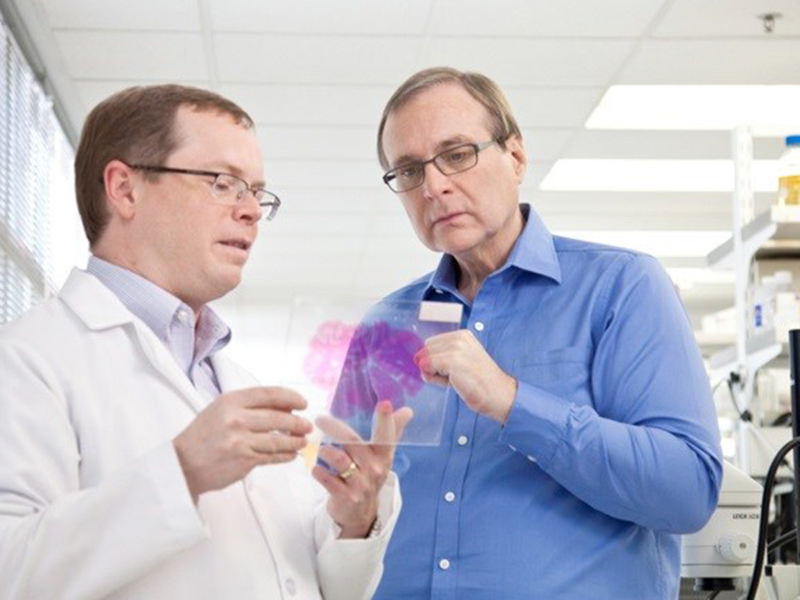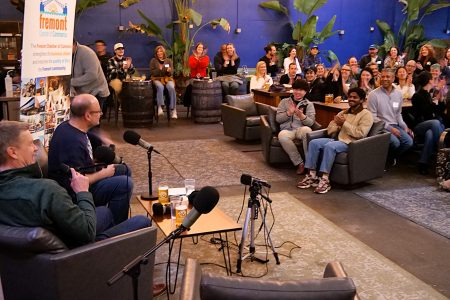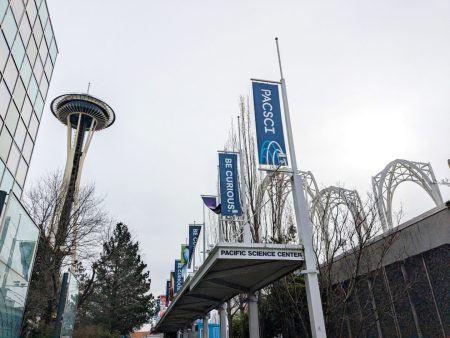Paul Allen’s Legacy Lives On: New Science Foundation Continues His Vision for the Future
In the final years of his life, Microsoft co-founder Paul Allen maintained his characteristic optimism about the possibilities of science and technology. “It really is a golden age of what’s possible,” he told GeekWire in 2017. Now, that optimistic vision continues through a new nonprofit organization created according to Allen’s specific instructions before his passing in 2018. The Fund for Science and Technology (FFST) launches with a substantial $3.1 billion endowment from Allen’s estate and a mandate to make bold investments in three areas he personally identified as crucial: bioscience, environmental research, and artificial intelligence for social good. This isn’t just an interpretation of what Allen might have wanted—it represents his direct wishes, carefully planned during his lifetime and now being implemented by those he trusted to carry forward his legacy.
Dr. Lynda Stuart, a physician-scientist with extensive background in immunology and global health who previously led the Institute for Protein Design, now serves as FFST’s CEO. She notes that Allen’s selection of focus areas demonstrates his “magical ability to see into the future,” as these fields remain at the forefront of scientific importance today. The foundation’s board, also personally selected by Allen, includes his sister Jody Allen as chair, along with former Microsoft CEO Steve Ballmer, former Allen Institute CEO Allan Jones, Dr. Thomas Daniel of the Washington Research Foundation, and investment advisor Nancy Peretsman. This carefully assembled leadership team combines scientific expertise with business acumen, bringing together individuals who worked closely with Allen and understood his vision. The foundation plans to deploy at least $500 million over the next four years, beginning with $15 million in initial grants to Seattle research institutions.
The creation of FFST marks a significant milestone in the ongoing process of directing Allen’s considerable wealth toward his philanthropic priorities after his death from complications of non-Hodgkin’s lymphoma. While the separate Allen Family Philanthropies continues supporting community and arts initiatives, FFST is structured specifically for large-scale, high-impact scientific and technological investments. The foundation’s endowment could grow substantially in coming years with the expected sale of Allen’s sports franchises—the Portland Trail Blazers (recently sold for a reported $4 billion) and eventually the Seattle Seahawks. A spokesperson for Allen’s estate confirmed that proceeds from these sales will go to philanthropic causes as Allen directed, though specific allocations remain to be announced. Even with its initial endowment, FFST already ranks among the top U.S. philanthropies focused on science and technology, comparable to established institutions like the Simons Foundation and the Alfred P. Sloan Foundation.
FFST’s approach differs from larger philanthropies like the Gates Foundation by focusing more on “frontier science” and discovery rather than later-stage implementation work. The foundation begins with a small team of six people based in Seattle, in the same building that houses Vale Group (formerly known as Allen’s Vulcan holding company). While FFST will eventually fund projects nationally and internationally, its inaugural grants strategically invest in Seattle-based institutions to encourage scientific collaboration and “strengthen the region as a powerhouse” in FFST’s focus areas. Initial grant recipients include the Benaroya Research Institute’s biorepository of human samples for immune system research, the University of Washington’s College of the Environment for climate change prediction and solutions, Fred Hutchinson Cancer Center for immune system research targeting cancer and autoimmune diseases, and Seattle Children’s for developing new cell-based treatments for children.
The foundation launches at a particularly critical time for scientific research, as many organizations face challenges in the federal funding landscape. The grant to Benaroya Research Institute supports vital infrastructure—a library of over 350,000 biological samples collected from 15,000 people over two decades—that enables rapid testing of new immunology concepts but is difficult to maintain through traditional project-specific grants. Dr. Jane Buckner, BRI president, praised FFST’s “unique vision” in funding resources that benefit the broader scientific community. Similarly, the grant to Seattle Children’s will ensure continued development of “off-the-shelf” cell therapies that can be produced in advance rather than custom-manufactured for each patient. Dr. Colleen Delaney of Seattle Children’s Therapeutics described the funding as critical during a time when federal support for research has been under pressure, offering “a unique opportunity to bring us together and to reimagine how quickly we get things done.”
While these initial investments address immediate needs in the scientific community, Dr. Stuart emphasizes that FFST doesn’t view its role as merely filling gaps left by federal funding cuts. Instead, the foundation will be guided by its larger mission, aligned with Allen’s vision of making transformative impacts in science and technology. “It’s really important for people to continue to be able to dream and to imagine a different future,” Stuart explained. This sentiment perfectly captures the essence of Paul Allen’s approach to innovation throughout his life—from his pioneering work with Microsoft to his far-reaching investments in research and technology. Through FFST, Allen’s commitment to asking big questions and seeking bold answers continues, ensuring his legacy as the “Idea Man” extends far beyond his lifetime, potentially transforming fields that will shape humanity’s future just as he envisioned.















